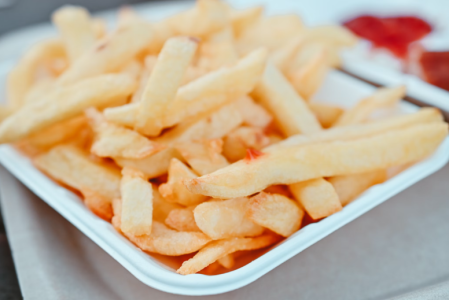Cholesterol truths: what the experts say about keeping your heart healthy
- Replies 0
Cholesterol often gets a bad rap. It’s easy to dismiss it as something "out there," especially when life’s got you flat out.
But ignoring it can lead to some serious heart issues, like blockages and strokes. If you’re over 60, getting your levels checked every five years is a good idea.
"Take prevention very seriously," warns Manuel Mayr, a cardiologist at Imperial College London, "Because if your cholesterol is high, if it’s over decades, it builds up in your arteries."
Think of your blood vessels as a washing machine, he suggests. "If you have a lot of hard water, there’s a high risk of your washing machine getting a blockage." Not a pretty picture.
So, what’s the real deal with cholesterol, and how do we keep it in check?
Emily McGrath, a senior cardiac nurse at the British Heart Foundation (BHF), explains it’s a ‘fatty substance that is found naturally as part of your circulation’.
We need some for hormones and cell structure, but too much is a recipe for trouble says Tracy Parker, a senior dietitian at the same organization.
"When those levels go high, that’s a problem," she added.
There’s the ‘bad’ LDL cholesterol, which can clog your arteries, and the "good" HDL, which helps your liver clear out the LDL.
Mayr added that "numerous studies have shown that if you lower your bad cholesterol, you reduce cardiovascular events."
The NHS recommends that those aged 40-74 get checked every five years, while those over 75 should get it annually, says McGrath.
But he also noted that "…if there are concerns over family history of heart disease, or if you’re suffering with angina-type chest pain, anyone is entitled to ask their GP for a check."
A full lipid profile is ideal, showing HDL, LDL, and triglycerides—another type of blood fat.
Also read: Dietitian's secret: Discover the ultimate protein that slashes cholesterol levels!
Healthy HDL should be above 1 mmol/L for men and 1.2 mmol/L for women. LDL should be below 3 mmol/L. Triglycerides should be 2.3 mmol/L or less, or 1.7 mmol/L if you’ve fasted.
"Some people can have good cholesterol levels but high triglycerides, and it still puts them at risk," McGrath stated.
Triglycerides are "unused calories" that the body can use as stored energy in the blood.
Genetics play a big role, says Mayr. "Lipid levels are genetic, and if you have very high cholesterol and you’re unfortunate to have inherited this from your parents, you need medication, because you can’t reach the target level just by making diet changes."
Familial hypercholesterolemia affects about one in 250 people.
"If your father or your brother was under the age of 55 when they had a heart attack, or your mother or your sister were under 65, that’s an indication," McGrath points out that you might want to have your cholesterol checked.
Other risk factors include age, weight, family history, smoking, alcohol, blood pressure, ethnicity, and gender, says McGrath. "If the key risk assessment is above 10%, you will be offered a statin."
If your high cholesterol isn’t genetic, you can try lifestyle changes first, says McGrath.
"Most GPs will be willing to let that person have a try at reducing it themselves and then seeing how they get on. It’s a conversation for the doctor and you."
"It’s hard for a lot of people, but small, simple changes make a big difference," says Parker.
Also read: Is this everyday nut the secret to lower cholesterol and a healthier heart? Experts reveal surprising results!
"Those healthy swaps. You may not be changing everything, but changing from a full-fat milk to a low-fat milk, or butter to an unsaturated fat spread, or cutting down on processed meat–those little things make a big difference over time."
Fiber, especially soluble fiber in oats, beans, and lentils, is your mate. "Around 3g a day can help to maintain or lower cholesterol levels," says Parker.
Unsaturated fats in olive oil, avocados, nuts, and oily fish are also good.
Putting your cholesterol under control is all about reducing certain foods in your diet.
"When we talk about lowering cholesterol, it’s about reducing saturated fat in the diet, as we know that that’s linked to raised LDL cholesterol," Parker points out.
That means cutting back on processed meats, high-fat dairy, and tropical oils like coconut and palm. Sugary and ultra-processed foods are also no-nos.
As for eggs and shellfish, they really have a "small impact on our blood cholesterol levels," says Parker. "It’s more important to reduce your intake of saturated fat."
"Statins are a super-safe drug," says Mayr, "but they typically lower cholesterol by around 50%." If you need more help, there are newer therapies like PCSK9 inhibitors.
Cholesterol is complex, and understanding it requires sifting through a lot of misinformation. Remember, it’s about balance and making informed choices about your diet and lifestyle.
If you’re concerned about your cholesterol levels, speak with your healthcare provider to develop a plan that’s right for you.
Read next: Discover The Green Superfood That Naturally Lowers Cholesterol!

What lifestyle changes have you found effective in managing your cholesterol levels? Share your experiences in the comments below and let’s continue the conversation about maintaining a healthy heart and a vibrant life.
But ignoring it can lead to some serious heart issues, like blockages and strokes. If you’re over 60, getting your levels checked every five years is a good idea.
"Take prevention very seriously," warns Manuel Mayr, a cardiologist at Imperial College London, "Because if your cholesterol is high, if it’s over decades, it builds up in your arteries."
Think of your blood vessels as a washing machine, he suggests. "If you have a lot of hard water, there’s a high risk of your washing machine getting a blockage." Not a pretty picture.
So, what’s the real deal with cholesterol, and how do we keep it in check?
Emily McGrath, a senior cardiac nurse at the British Heart Foundation (BHF), explains it’s a ‘fatty substance that is found naturally as part of your circulation’.
We need some for hormones and cell structure, but too much is a recipe for trouble says Tracy Parker, a senior dietitian at the same organization.
"When those levels go high, that’s a problem," she added.
There’s the ‘bad’ LDL cholesterol, which can clog your arteries, and the "good" HDL, which helps your liver clear out the LDL.
Mayr added that "numerous studies have shown that if you lower your bad cholesterol, you reduce cardiovascular events."
The NHS recommends that those aged 40-74 get checked every five years, while those over 75 should get it annually, says McGrath.
But he also noted that "…if there are concerns over family history of heart disease, or if you’re suffering with angina-type chest pain, anyone is entitled to ask their GP for a check."
A full lipid profile is ideal, showing HDL, LDL, and triglycerides—another type of blood fat.
Also read: Dietitian's secret: Discover the ultimate protein that slashes cholesterol levels!
Healthy HDL should be above 1 mmol/L for men and 1.2 mmol/L for women. LDL should be below 3 mmol/L. Triglycerides should be 2.3 mmol/L or less, or 1.7 mmol/L if you’ve fasted.
"Some people can have good cholesterol levels but high triglycerides, and it still puts them at risk," McGrath stated.
Triglycerides are "unused calories" that the body can use as stored energy in the blood.
Genetics play a big role, says Mayr. "Lipid levels are genetic, and if you have very high cholesterol and you’re unfortunate to have inherited this from your parents, you need medication, because you can’t reach the target level just by making diet changes."
Familial hypercholesterolemia affects about one in 250 people.
"If your father or your brother was under the age of 55 when they had a heart attack, or your mother or your sister were under 65, that’s an indication," McGrath points out that you might want to have your cholesterol checked.
Other risk factors include age, weight, family history, smoking, alcohol, blood pressure, ethnicity, and gender, says McGrath. "If the key risk assessment is above 10%, you will be offered a statin."
If your high cholesterol isn’t genetic, you can try lifestyle changes first, says McGrath.
"Most GPs will be willing to let that person have a try at reducing it themselves and then seeing how they get on. It’s a conversation for the doctor and you."
"It’s hard for a lot of people, but small, simple changes make a big difference," says Parker.
Also read: Is this everyday nut the secret to lower cholesterol and a healthier heart? Experts reveal surprising results!
"Those healthy swaps. You may not be changing everything, but changing from a full-fat milk to a low-fat milk, or butter to an unsaturated fat spread, or cutting down on processed meat–those little things make a big difference over time."
Fiber, especially soluble fiber in oats, beans, and lentils, is your mate. "Around 3g a day can help to maintain or lower cholesterol levels," says Parker.
Unsaturated fats in olive oil, avocados, nuts, and oily fish are also good.
Putting your cholesterol under control is all about reducing certain foods in your diet.
"When we talk about lowering cholesterol, it’s about reducing saturated fat in the diet, as we know that that’s linked to raised LDL cholesterol," Parker points out.
That means cutting back on processed meats, high-fat dairy, and tropical oils like coconut and palm. Sugary and ultra-processed foods are also no-nos.
As for eggs and shellfish, they really have a "small impact on our blood cholesterol levels," says Parker. "It’s more important to reduce your intake of saturated fat."
"Statins are a super-safe drug," says Mayr, "but they typically lower cholesterol by around 50%." If you need more help, there are newer therapies like PCSK9 inhibitors.
Cholesterol is complex, and understanding it requires sifting through a lot of misinformation. Remember, it’s about balance and making informed choices about your diet and lifestyle.
If you’re concerned about your cholesterol levels, speak with your healthcare provider to develop a plan that’s right for you.
Read next: Discover The Green Superfood That Naturally Lowers Cholesterol!
Key Takeaways
- Cholesterol is essential in small amounts but becomes harmful when levels are too high, particularly LDL cholesterol, which increases the risk of heart disease and stroke.
- Regular cholesterol checks are crucial—especially for those over 40 or with a family history of heart disease—as genetics play a major role and lifestyle changes may not always be enough.
- Improving cholesterol levels often starts with simple diet changes like reducing saturated fat and processed foods, and increasing fiber and healthy fats from foods like oats, nuts, and oily fish.
- While lifestyle changes are effective for many, medications like statins may be necessary for those with genetic conditions or high risk, and should be discussed with a healthcare provider.







